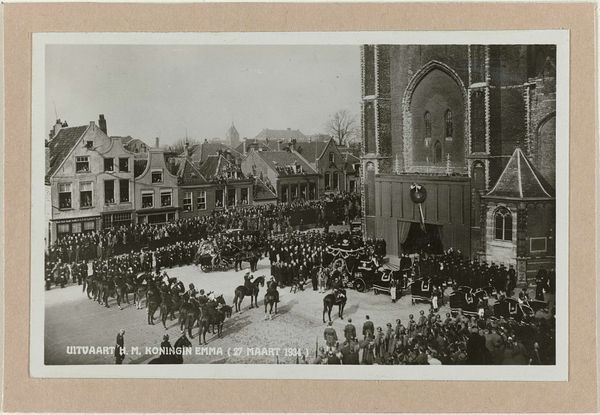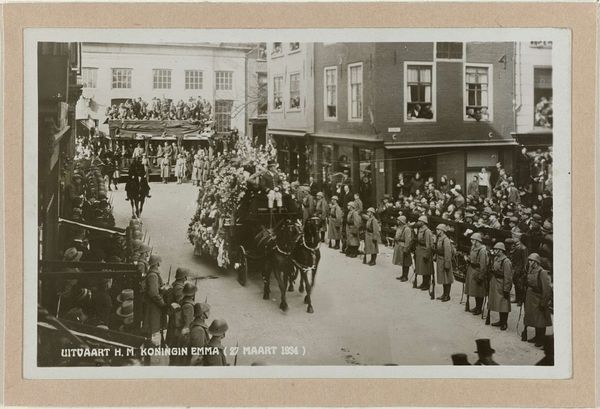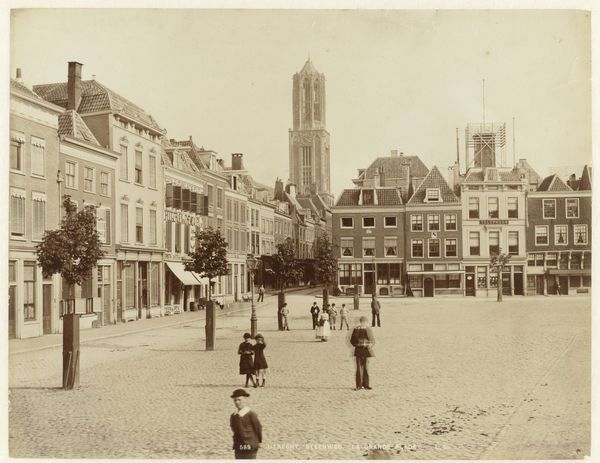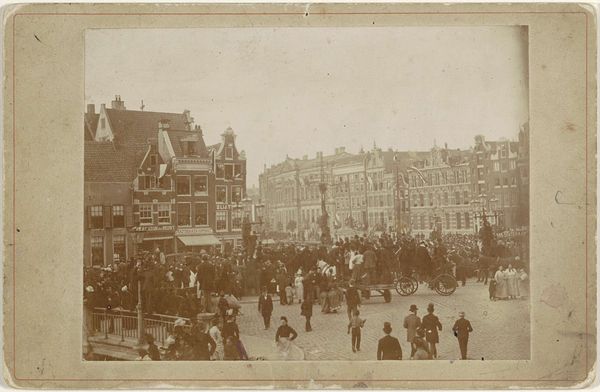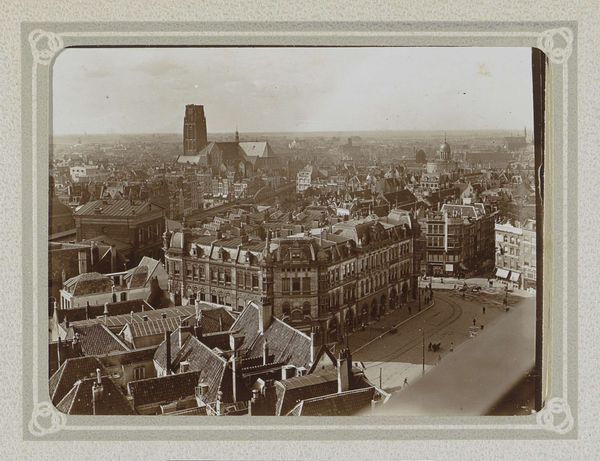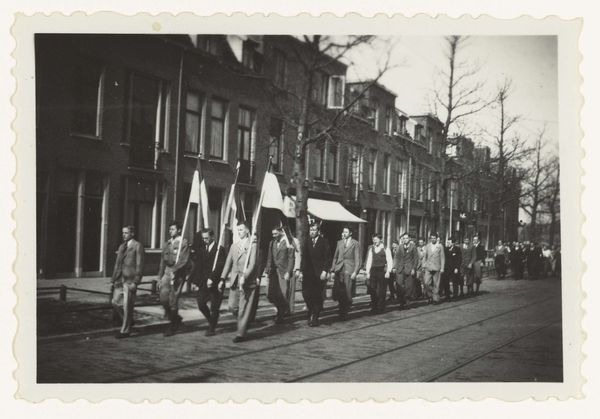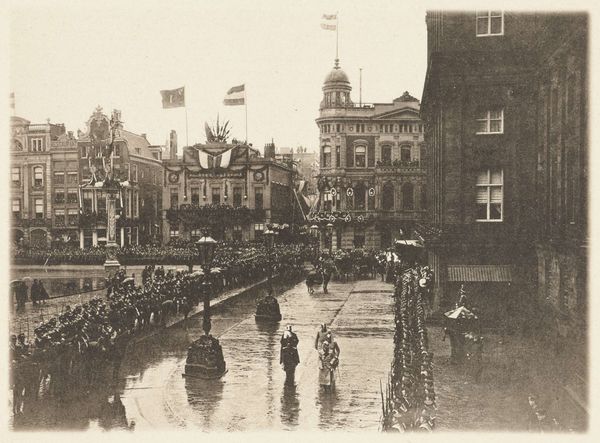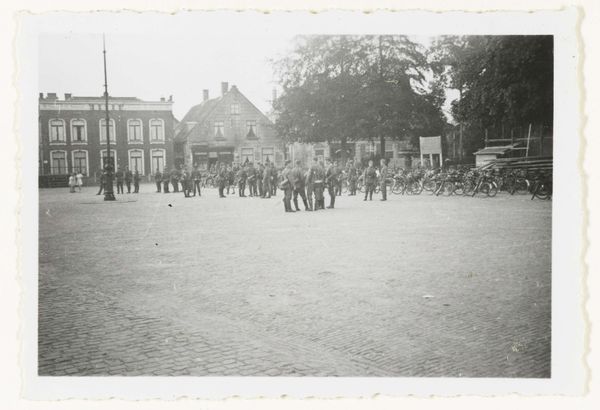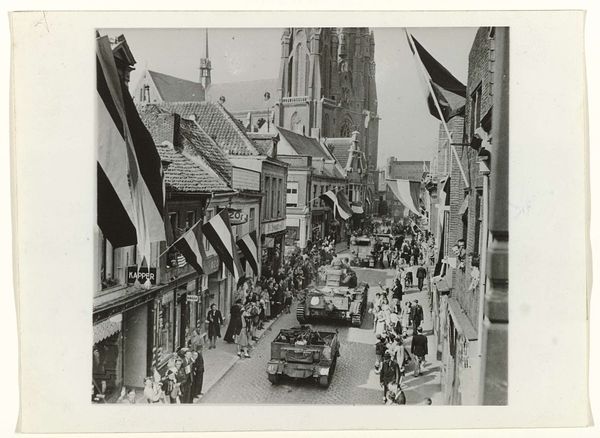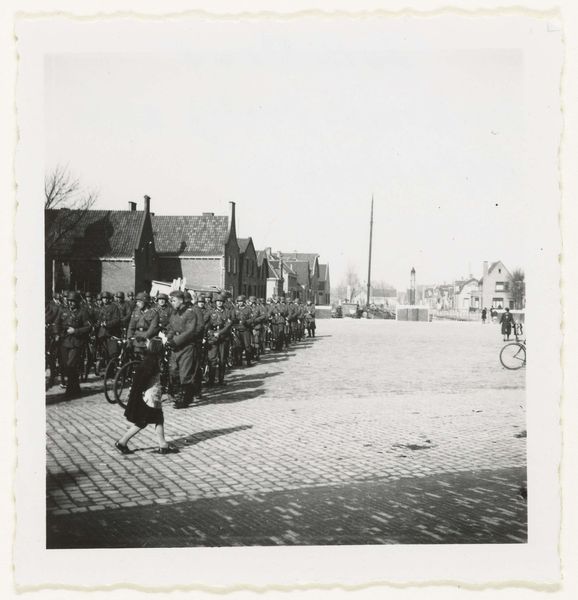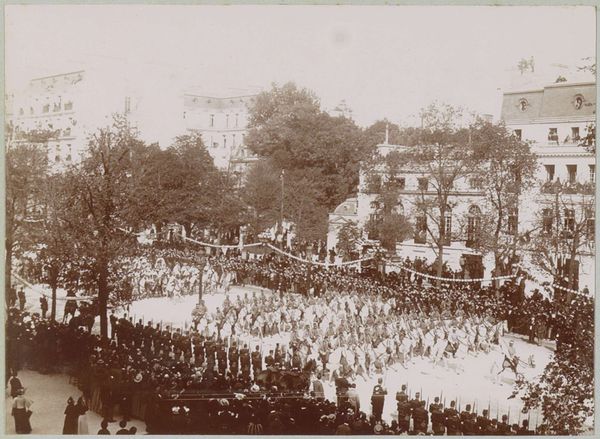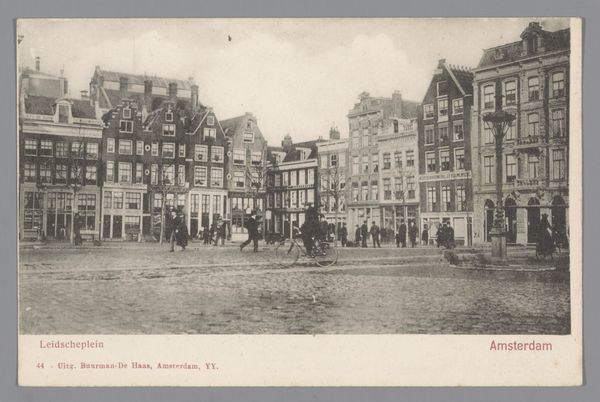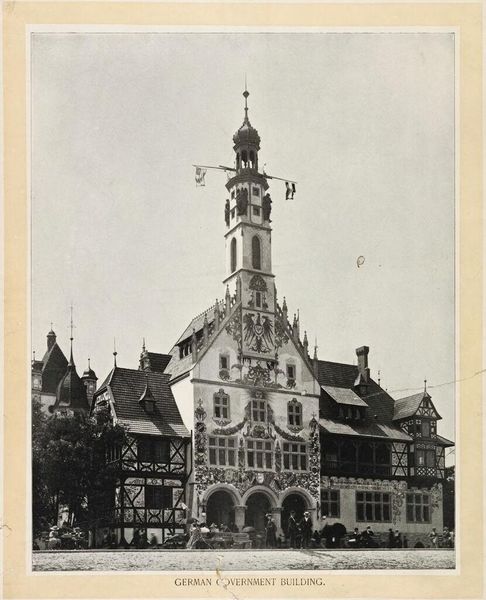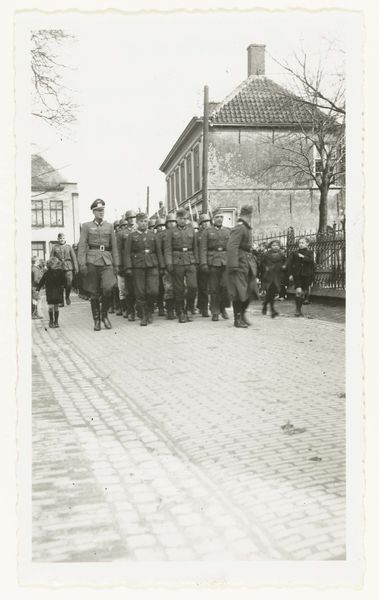
De aankomst voor de Nieuwe Kerk van de begrafenisstoet van Hendrik van Mecklenburg-Schwerin te Delft op 11 juli 1934 Possibly 1934 - 1937
0:00
0:00
anonymous
Rijksmuseum
print, photography, gelatin-silver-print
#
portrait
#
medieval
# print
#
landscape
#
outdoor photograph
#
street-photography
#
photography
#
historical photography
#
gelatin-silver-print
#
monochrome photography
#
cityscape
#
realism
#
statue
Dimensions: height 85 mm, width 137 mm
Copyright: Rijks Museum: Open Domain
Editor: This gelatin-silver print, "De aankomst voor de Nieuwe Kerk van de begrafenisstoet van Hendrik van Mecklenburg-Schwerin te Delft op 11 juli 1934," captures a moment in Dutch history. What strikes me is the almost theatrical composition, the way the artist uses light and shadow to direct the viewer's eye. What do you notice about its formal qualities? Curator: The artist’s manipulation of tonal contrast certainly commands attention. Observe how the geometric forms of the architecture – the New Church spire, the linear arrangement of buildings – are counterpointed by the organic mass of the crowd. Consider the balance, or imbalance, created by the statue on the left, versus the open space. Editor: It feels very staged, almost artificial. Is this typical of gelatin-silver prints of this era, or is the artist using these properties to express a particular idea? Curator: That's an astute observation. The gelatin-silver process allows for great tonal range and sharpness, contributing to that crisp, almost hyper-real quality. Note also the photographer’s perspective - a slightly elevated vantage point which flattens the scene, emphasizing the surface of the image. One could argue that the photographer deliberately used these formal elements to emphasize order and control, befitting a royal procession. Editor: So, you are saying it’s the careful composition and tonal control that give the photograph its power. Curator: Precisely. It’s not merely a record of an event, but a constructed image, deliberately using form to create meaning. Editor: I see now how a close look at the formal elements can reveal so much. Thanks for pointing that out! Curator: A pleasure. Remember, form is not merely decorative; it's integral to how we understand and interpret the artwork's significance.
Comments
No comments
Be the first to comment and join the conversation on the ultimate creative platform.
